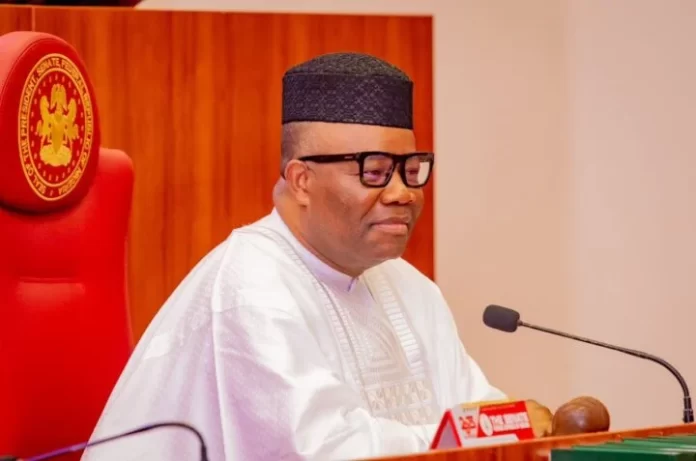A bit of drama unfolded in the Nigerian Senate on Wednesday when lawmakers debated the enforceability of financial autonomy granted the 774 Local Government Councils by the Supreme Court in August.
Senator Tony Nwoye (LP, Anambra North) sparked the discussion with a motion citing Orders 41 and 51 of the Senate Standing Rules. He claimed some state governments were circumventing the Supreme Court’s ruling by enacting counter-laws through their state Houses of Assembly.

Nwoye’s motion, co-sponsored by nine other senators, alleged governors were pushing laws requiring local councils to remit funds into a State/Local Government Joint Account, deemed unconstitutional by the Supreme Court. Senator Osita Izunaso (APC, Imo West) seconded the motion.
However, Senator Adamu Aliero (PDP, Kebbi Central) called for a halt to the debate, referencing Section 287 of the 1999 Constitution, which mandates Supreme Court judgments be enforceable nationwide. Senate President Godswill Akpabio supported Aliero’s stance, highlighting Section 162, subsection 6 of the 1999 Constitution.
Akpabio suggested constitutional amendments were necessary for the full implementation of the Supreme Court ruling. “We need to carry out the required amendments to certain provisions of the Constitution as far as local government autonomy is concerned,” he stated.
As Nwoye invoked Order 42 for a personal explanation and Senator Abdulrahman Summaila Kawu (NNPP, Kano South) raised a similar point of order, simultaneous points of order caused confusion. This prompted the Senate to enter an emergency closed-door session at 12:46 PM.
Backing Supreme Court Verdict
After the closed-door meeting, Deputy Senate President Jibrin Barau urged senators to support two key prayers. The first prayer, seconded by Senator Abdul Ningi from Bauchi Central, calls for states and local governments to fully comply with the Supreme Court’s judgment on fund disbursement and utilization for local governments.
The second prayer, seconded by Senator Mohammed Tahir Monguno from Borno North, seeks constitutional amendments to grant local governments full autonomy.
The Supreme Court’s judgment, delivered by Justice Emmanuel Agim, ruled that the 774 local government councils should independently manage their funds. This verdict catalyzed the spate of democratic elections for LGAs going on in the states of the federation and is expected to enhance local government independence, accountability, and decision-making, ultimately boosting grassroots development.
Comment, Like 👍, share this article, and Follow us on our social media handles.








